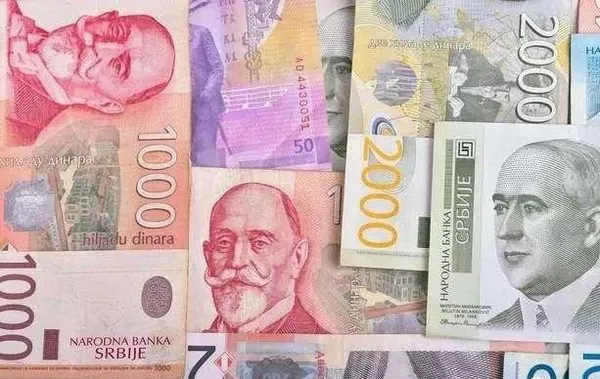In the ever-fluctuating landscape of global economics, the exchange rate between currencies plays a pivotal role in shaping international trade, investment, and financial markets. Among the myriad of currency pairs, the pound to dollar exchange rate stands out as one of the most closely scrutinized and influential. This article aims to delve into the intricacies of the pound to dollar exchange rate, exploring the factors that influence its value and the implications for various stakeholders.
Historical Perspective
To understand the present dynamics, it’s essential to glance back at the historical context of the pound to dollar exchange rate. The British pound sterling (GBP) and the United States dollar (USD) have shared a complex relationship shaped by geopolitical events, economic shifts, and monetary policies. Traditionally, the pound has been regarded as a stable and influential currency, owing to the historical prominence of the British Empire. However, the post-World War II era witnessed a gradual decline in the pound’s dominance, with the dollar emerging as the primary global reserve currency.
Factors Influencing the Exchange Rate
A multitude of factors contribute to the determination of the pound to dollar exchange rate, making it a dynamic and constantly evolving metric. Here are some key influencers:
Interest Rates:
Central banks play a pivotal role in shaping exchange rates through their monetary policies. The interest rates set by the Bank of England (BoE) and the Federal Reserve (Fed) influence the attractiveness of their respective currencies. Higher interest rates in the UK may attract foreign capital, leading to an appreciation of the pound relative to the dollar and vice versa.
Economic Indicators:
Economic indicators, such as GDP growth, employment rates, and inflation, have a substantial impact on exchange rates. A robust and growing economy in the UK is likely to strengthen the pound, whereas economic uncertainties may weaken it.
Political Stability:
Political stability is a key determinant of a currency’s value. Political events, elections, and policy changes can introduce uncertainty that may influence investor confidence. Stable political conditions in the UK are generally favorable for a stronger pound.
Trade Balance:
The trade balance between two countries affects their currencies’ value. A trade surplus in the UK (exporting more than importing) can contribute to a stronger pound, while a trade deficit may lead to depreciation.
Market Sentiment:
Investor sentiment and market perceptions play a crucial role in short-term fluctuations. News, geopolitical events, and global economic conditions can cause rapid changes in the exchange rate.
Current Scenario
As of [current date], the pound to dollar exchange rate is [exchange rate]. This rate reflects the culmination of various ongoing factors and events influencing the currency market. The global economic landscape, recovering from the impacts of [recent events], has seen shifts in investor sentiment, central bank policies, and trade dynamics.
The Bank of England’s monetary policies, including interest rate decisions and quantitative easing measures, have been closely monitored by market participants. Similarly, the Federal Reserve’s actions, especially in response to inflationary pressures and economic recovery, have had repercussions on the value of the dollar.
Brexit, the UK’s withdrawal from the European Union, has been a significant driver of uncertainty. The negotiations, trade agreements, and their implications on the UK’s economic standing have contributed to fluctuations in the pound to dollar exchange rate. Additionally, the ongoing global supply chain challenges and geopolitical tensions have added layers of complexity to the currency dynamics.
Implications for Stakeholders
Importers and Exporters:
Fluctuations in the pound to dollar exchange rate directly impact businesses engaged in international trade. Importers may face increased costs when the pound weakens, while exporters may benefit from a stronger pound, potentially boosting their competitiveness in global markets.
Investors:
Investors, both domestic and international, closely monitor exchange rates when making investment decisions. Currency movements can significantly affect the returns on foreign investments, making it crucial for investors to navigate the currency market strategically.
Tourism Industry:
The tourism industry is highly sensitive to exchange rate movements. A weaker pound may attract more international tourists to the UK, while a stronger pound might make outbound travel more appealing for British tourists.
Central Banks and Policymakers:
Central banks and policymakers closely observe exchange rates as part of their efforts to maintain economic stability. Currency interventions and policy adjustments may be implemented to influence exchange rates in alignment with broader economic objectives.
See Also How Do You Gain From A Weak Pound?
Conclusion
The value of the pound to dollar exchange rate is a dynamic and multifaceted phenomenon shaped by a myriad of factors. From interest rates and economic indicators to political stability and global events, the interplay of these elements determines the currency’s value. As we navigate the complexities of the global economy, understanding the dynamics of the pound to dollar exchange rate becomes essential for businesses, investors, and policymakers alike. Keeping a watchful eye on these factors and their implications can empower stakeholders to make informed decisions in an ever-changing financial landscape.


